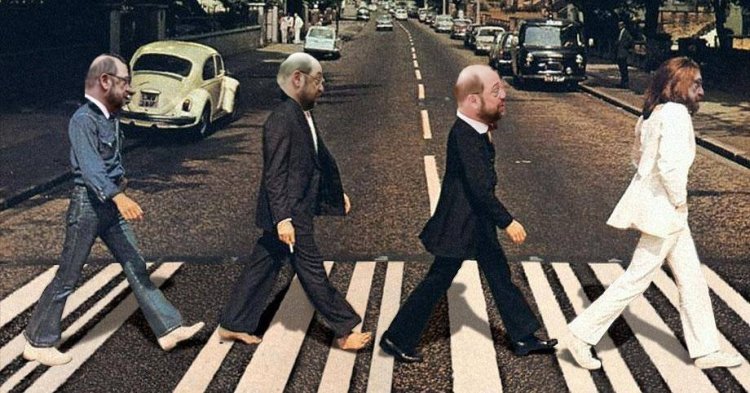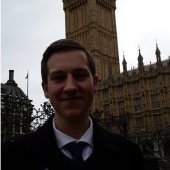After an election campaign dominated by tough issues like pensions, refugees, and – importantly! – Europe, German voters are facing the choice of who becomes their next Chancellor this Sunday. With only a few days to go until the vote on the 24th, it’s time to take a look at one of the most important elections this year. After all, Germany’s voice resounds loudly inside the halls of the EU in Brussels, and Merkel’s image as one of the key leaders of the EU has been a constant factor of stability and development for the last decade.
Mutti Merkel: a Predictable Winner?
German politics are dominated by two main parties: the Social Democratic SPD, and the Christian Democratic CDU in union with the Bavarian Christian Social Union CSU. There are several smaller parties with various voter bases around as well, but in order to gain seats in the German parliament a party has to attain a 5% vote threshold, preventing splinter groups from taking seats. Contenders for seats include the Bündnis90/Die Grünen (the German Green party), the aforementioned liberal FDP, the left-wing Die Linke, and the anti-immigrant, far-right Alternative für Deutschland.
Merkel, whose CDU/CSU union entered into a coalition with arch-enemy SPD after the 2013 election, is set to win the largest number of seats for the fourth time in a row, according to recent polls. Merkel’s party scores 37% of the vote in a recent Tagesschau poll [4], with the SPD trailing at 20% after a hike to near-parity with the Christian Democrats a few months ago. The SPD’s Martin Schulz, formerly a very familiar face in European politics, was announced as the Social Democratic frontrunner in March this year, but even the plentiful meme pages dedicated to him did not stop his party’s polling results from worsening month after month.
It seems, then, that ‘Mutti Merkel’, or mummy Merkel, is set to gain another victory. If she does, though, who will she work with? She has already ruled out entering into a coalition with the far-left Die Linke and the far-right AfD, which leaves the Greens and the FDP as possible partners. Otherwise, the grand coalition of CDU/CSU and SPD may have to continue.
A coalition with the Greens may seem unlikely, given the major differences between Merkel’s party and the Greens. But then again, grand coalitions are not a rarity in Germany, and tough concessions have been made in coalition talks before. The main hurdle for the Greens is their own willingness to make a deal. If a black-yellow-green (i.e. CDU-FDP-Green) coalition is to be formed, the Greens will face massive resistance from within their own party, [5] especially about working together with the pro-business, non-environmentalist FDP. So the coalition game may become more interesting than expected.
The FDP, meanwhile, have been in coalition with Merkel before, from 2009 to 2013, but lost all of its seats after it did not attain 5% of the vote in the 2013 election. They are now dangling around 10% in the polls, and very keen to enter into government once again. Too keen, perhaps, as senior FDP’ers have already started demanding posts and policy changes from Merkel in exchange for their support for her government. [6] In terms of European development, the FDP remains moderately Eurosceptic, failing to give support to French plans for deeper Eurozone integration and further EU reform.
Germany and Europe
So, FDP ministers in a German government may stifle the reformist notions of Merkel’s policies over the last few years. Would this be a disaster for Europe? Probably not. But it certainly wouldn’t help the federalist case. On the other hand, a coalition with the Greens, who are staunchly pro-European, may give Europe even more impulse than it has already had from the defeat of populists across the continent in this year’s election cycle.
Speaking of which, a relative newcomer on the German political stage is currently hanging around 10% in the polls: the Alternative for Germany group. They failed to get 5% of the vote in 2013, but are almost certain to enter the Bundestag this year around. Comparable to UKIP in Britain, the FPÖ in Austria, the Front National in France, and the Freedom Party in the Netherlands, the AfD is a Eurosceptic and anti-immigrant group which gained traction during the 2015 migrant crisis after Merkel’s welcoming policy towards refugees received public criticism.
As federalists, we can hope for as small an AfD as possible, as a party who invites Nigel Farage to speak at its conference [7] can never be a positive force for Europe. Fortunately for every sane German, the AfD have been excluded from possible coalitions by both CDU/CSU and SPD, eliminating any hopes the AfD may have had of entering the government. Phew.
So all in all, will Germany remain a main cylinder in the EU engine? Probably, yes. Will Mutti Merkel remain in office? Probably, yes. But as we know, politics is an unpredictable business. It’s likely the AfD will gain seats, and with them, influence. But I’m sure the meme captains will come to the main parties’ rescue. After all, politics taken with a pinch of salt is the kind of politics a regenerating Europe desperately needs. Martin Caesar or not.
Sources
[1] Jeden Tag das gleiche Bild von Martin Schulz. Available from https://www.facebook.com/JedenTagDasGleichBildVonMartinSchulz/
[2] Gottkanzler Schulz. Available from https://www.facebook.com/pg/GottkanzlerSchulz/photos/?ref=page_internal
[3] Lässige Lindner-Memes für Liberale Teens. Available from https://www.facebook.com/L%C3%A4ssige-Lindner-Memes-f%C3%BCr-Liberale-Teens-1890737914515822/
[4] Tagesschau (2017) ARD-DeutschlandTrend vom 14. September 2017. Available from http://www.tagesschau.de/inland/btw17/welche-koalitionen-sind-am-wahrscheinlichsten-101.html [Accessed 19/09/2017]
[5] Delcker, Janosh (2017) German Greens caught in coalition dilemma. Available from http://www.politico.eu/article/german-greens-caught-in-coalition-dilemma-germany-election-spd-fdp/ [Accessed 19/09/2017]
[6] Reuters (2016) German Liberals would expect finance ministry in Merkel coalition. Available from https://www.reuters.com/article/us-germany-election-fdp/german-liberals-would-expect-finance-ministry-in-merkel-coalition-idUSKCN1BS0JA [Accessed 19/09/2017]
[7] Oltermann, Philip (2017) Nigel Farage backs far-right AFD for ‘historic’ German election success. Available from https://www.theguardian.com/politics/2017/sep/08/nigel-farage-backs-far-right-afd-for-historic-german-election-success [Accessed 19/09/2017]


Follow the comments: |
|
